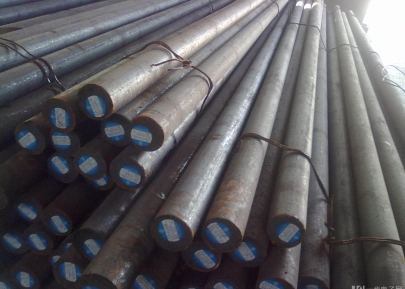Why Copper Blocks are Essential for Mould Base Fabrication: Unveiling the Benefits and Applications
In the shimmering realm of manufacturing, where precision meets durability, the spotlight often gleams upon copper. More than mere metal, copper blocks stand as bastions of strength in mould base fabrication. Through the lens of innovation and tradition, let us embark on a journey to explore the benefits and applications of these remarkable materials.
The Essence of Mould Base
A mould base forms the foundation of any production endeavor. In essence, it is the framework upon which the intricate designs of machinery and products emerge. Without a robust and reliable base, the very production process falters. Copper blocks, infused with an array of advantages, play a critical role in this foundational stage. They not only provide the necessary support but also enhance the overall efficiency of production.
Why Choose Copper for Your Mould Base?
When one thinks of copper, durability and conductivity come to mind. The question then surfaces: why should copper be the material of choice in mould base fabrication? Below, we delve into the significant aspects that make copper blocks irreplaceable.
- Thermal Conductivity: The unparalleled heat conductivity of copper ensures that heat distribution is uniform, reducing the risk of warping and maintaining product quality.
- Corrosion Resistance: Copper possesses natural corrosion resistance, which prolongs the lifespan of mould bases and diminishes maintenance efforts.
- Mechanical Strength: The structural integrity of copper blocks provides the strength needed to support heavy machinery without deformation.
- Ease of Machining: Copper's malleability allows for easy machining, making it an ideal candidate for custom mould designs.
Applications of Copper Blocks in Mould Bases
The applications of copper blocks extend beyond mere structural support. They serve a multitude of functions that enhance manufacturing quality and efficiency.
1. Precision Engineering
Within precision engineering, copper blocks ensure that intricate details are captured with unparalleled accuracy. The thermal properties of copper help in maintaining consistent temperatures, preventing dimensional changes during the cooling process.
2. Aerospace Industry
In the aerospace sector, where every gram counts, the lightweight yet strong nature of copper blocks provides an unparalleled advantage. Aircraft components fabricated with copper-mould bases exhibit longevity and resistance to extreme conditions.
3. Automotive Manufacturing
Automotive manufacturers have embraced copper blocks for components that demand precision and durability. The ability of copper to withstand high temperatures during engine testing is a game-changer for efficiency.
How to Measure and Cut Base Moulding: A Step-by-Step Guide
When working with copper blocks, proper measurement and cutting techniques are essential for achieving desired results. Here’s a concise guide for artisans and manufacturers:
- Gather Tools: Collect all necessary tools, including a measuring tape, mitre saw, and safety equipment.
- Measure Accurately: Use a measuring tape to mark the desired lengths on the copper block. Precision here is vital.
- Set Up the Mitre Saw: Adjust the saw to match your measured angles, ensuring clean cuts.
- Cut the Copper: Employ consistent pressure while cutting, as it avoids jagged edges and promotes a clean finish.
- Finish the Edges: Smooth the cut edges using a file to prevent any safety hazards.
Key Takeaways
As we traverse the landscape of mould base fabrication, several critical points emerge that underscore the importance of copper blocks:
- Copper's thermal conductivity plays a pivotal role in maintaining product quality.
- Corrosion resistance significantly reduces maintenance needs.
- Its mechanical strength supports intricate designs without compromising durability.
- Copper is easy to machine, enabling swift production processes.
FAQs
Why is copper preferred in mould base fabrication?
Its exceptional properties such as thermal conductivity, corrosion resistance, and ease of machining make copper the material of choice.
What industries benefit from copper blocks?
Industries including aerospace, automotive, and precision engineering extensively utilize copper blocks due to their durability and efficiency.
How can I maintain my copper mould base?
Regular cleaning and inspection will help maintain your copper mould base. Avoid harsh chemicals that can corrode the surface.
The Future of Copper in Manufacturing
As we peek into the crystal ball of manufacturing technology, copper's role seems destined to grow. With advancements in metallurgy and alloy development, the potential for even more efficient copper applications is on the horizon.
Conclusion
In conclusion, copper blocks are more than just a material choice in mould base fabrication; they epitomize reliability, efficiency, and precision. Embracing copper means acknowledging a legacy of robust manufacturing that marries tradition with innovation. As industries continue to evolve, one thing remains certain: the essential nature of copper in mould base fabrication will always leave a lasting impression on the world of manufacturing.


